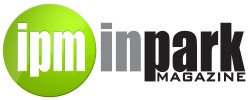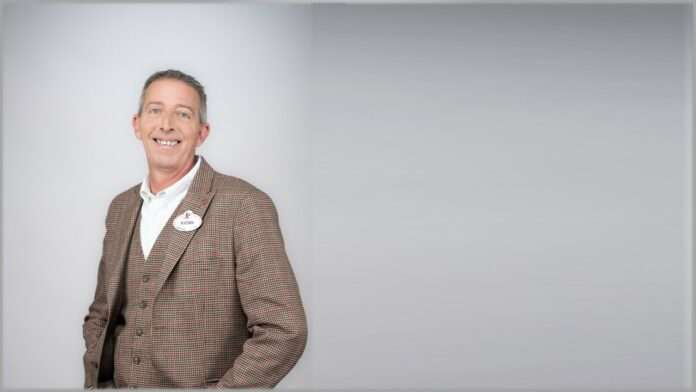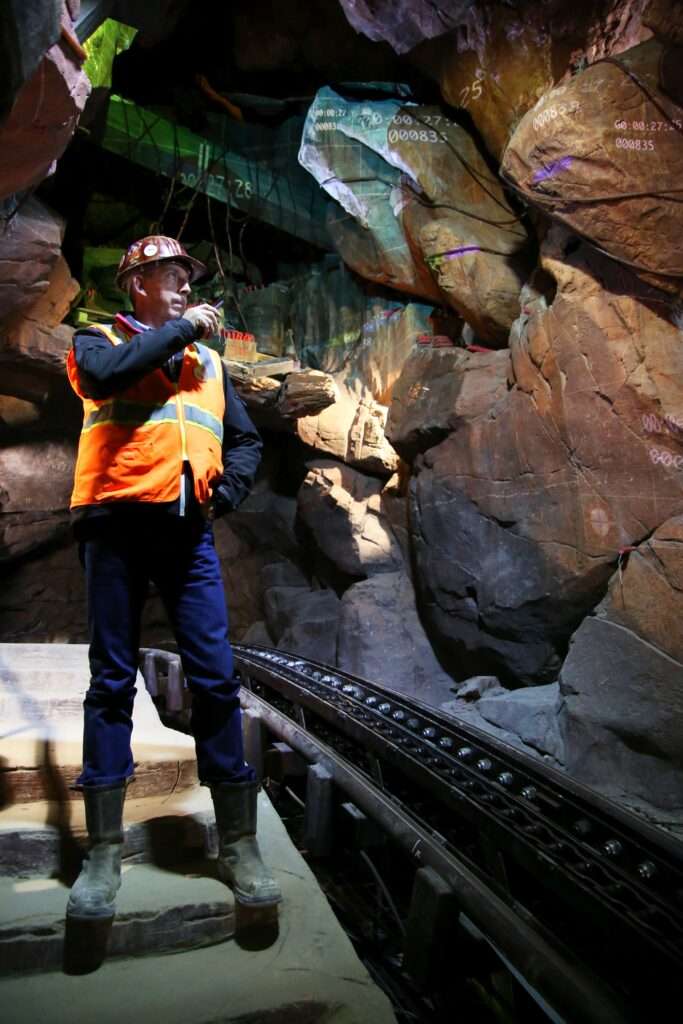The new TEA Master talks theater, Imagineering and more
Walt Disney Imagineer Björn Heerwagen is one of five TEA Masters recognized this year by the Themed Entertainment Association. Honoring industry professionals who have significantly and meaningfully contributed to the artistry and craft of themed entertainment, many of this year’s slate of recipients will be recognized at the TEA SATE North America event in Kansas City (October 11-14, 2023). Unable to attend, Björn was recently presented with his plaque at the TEA booth during the IAAPA Expo Europe. InPark Publisher Martin Palicki sat down to talk with Björn about his career and being recognized as a TEA Master.
How did you first get started in theater?
I started off in a youth theater in the UK when I was about twelve. I began as a singer and when my voice broke on stage in front of 900 people, I finished the song and went backstage – I’ve stayed backstage ever since. I joined the technical team and depending on the show we did we would shift around so you might do lighting or audio or costuming on a show.
School wasn’t particularly helpful. I failed my SATs and got misdirected. I started a course in radio, radar and telecommunications. At the end of the first semester I failed my exams and at the end of the second set of exams my teacher said “You know, you ought to find something else to do!” So I went to theater school in London. Again we would be in different roles, doing set construction on one show and lighting on another.
In order to pay my way I went knocking on doors in West End theaters and I turned up at one theater one night to drop off my CV and a guy came out and said “Are you looking for work? Can you dress?” I thought “I can dress myself!” So I said yes, and that was my first professional job in the West End as a dresser, for about three weeks. Then I got a job as a stagehand and then a charge hand, which learns all of the stage hand positions. I went up in the flys and learned all those positions and was ultimately able to take over for any of the roles. That allowed me to gain the experience and really fall in love with the technical side of performance.
Can you talk about your transition into Disney?
I was working on a cruise ship as a technical stage manager and I saw the advertisement for EuroDisneyland (now called Disneyland Paris), applied and was hired. My first job was as an AV Technician for everything that moved, from Star Tours to the Steamboat to the Trains. If it moved, I helped fix it! Then I started doing maintenance for the parade and central control room. From there I became technical director for the Wild West show.
I applied for a job at the newly formed Disney Cruise Line and that was fantastic because I had done ships before, and so the combination of ships and themed entertainment together really appealed to me. I worked on the Disney Magic and the Disney Wonder as the senior technical production manager. I then went to Walt Disney Special Events group in London. Then I decided I wanted to come back to France as a Technical Director for Disney Village and the Wild West Show. About six months into that role, my boss from Cruise Line invited me to lunch and suggested I switch over to Walt Disney Imagineering for the new Walt Disney Studios Park in Paris. I had sort of a unique role in that I did all sorts of things that nobody else wanted to do: spare parts, training, all of the backroom pieces of what we need to do to hand over an attraction to park operations.
I worked in Spain for a few years and then came back to work on the expansion of the Studios Park as an Imagineer, working on Crush’s Coaster, Cars Quatre Roues Rallye and The Twilight Zone Tower of Terror. I worked on the Lion King show production in Paris for a while and then returned to Disneyland Paris as a production manager, and close to the end of that time my manager asked me to be the show manager for Ratatouille: L’Aventure Toquée de Rémy and then the Experience Enhancement Program ahead of Disneyland Paris’ twenty-fifth anniversary, which revisited and elevated eleven legacy attractions. From there, I became a Director of Show Design & Production for the expansion of Walt Disney Studios Park. It’s been quite a varied career, but I’ve managed to continue learning and developing throughout.
Your skill set seems so wide and varied compared to many people in the industry.
I never found a niche, I never wanted to do just one thing. And I think that comes from my stage management training background — I’ve always been interested in the overall. I’m a little bit like the conductor of an orchestra; the benefit of the things I’ve learned is I can bring my experience to my team members to help them succeed. But I enjoy the cacophony of everything going around me without focusing on one specific area. I’m passionate about the whole experience.
Mentorship is a big component of the TEA Masters program. What mentors have you had throughout your career?
I’ve had a couple. Bob Tracht is an important one. He taught me the compassion for and understanding the value of a good team. We don’t work in the spotlight; we work backstage and success depends on the entire team. It’s not about me.
Bob helped me to realize that it’s all about the people. I don’t build anything anymore (which breaks my heart, because I used to love going into shops), but it’s the people who bring it together and it’s the artisans with whom we work. We bring creative intent and idea; they bring art to make it real. We are the guides that help create it.
Also RK Kelley from Disney Cruise Line Entertainment was a big inspiration for me. She’s the one who gave me the opportunity there and she’s very passionate about what she does and very caring about people.
What does being a TEA Master mean to you?
Just like Walt Disney felt about his legacy, we have the same responsibility as Masters to help bring the younger generation along. My way of going about it is slightly different than everyone else. I think it’s difficult to academize something which is a craft. So a lot of the discussions I have with NextGens are about how theater is the grassroots of what we do.
We have a duty to ensure upcoming professionals are given better opportunities than when we were younger. I was extremely fortunate to be in the youth theater I was in. I didn’t finish my degree until I was 35. The academic path for me was difficult. But there are other ways to go about it.
So it’s important for us as Masters to teach our craft, and it’s important to me to not do it with rose-colored glasses – be realistic about it. You really have to work your way up in the industry.
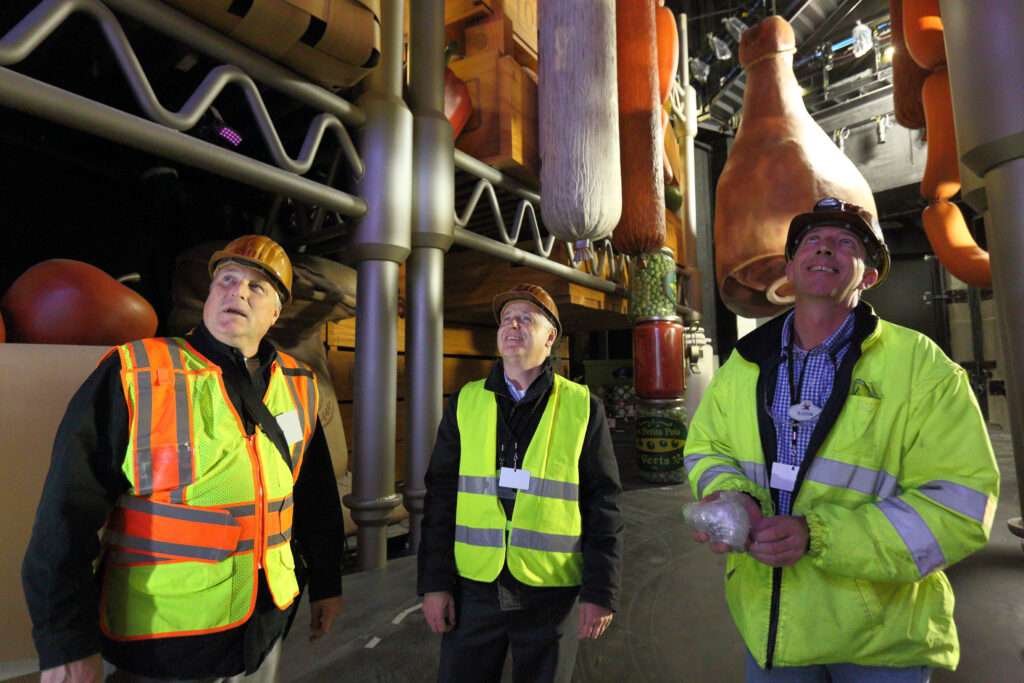
At the same time we need to be open to the new generation and the ideas they bring – it goes back to how we work at Disney and how everyone has a voice at the table. Just because we may not agree with your idea or thought it doesn’t mean you are being pushed aside, it’s just not right for the moment.
What is your advice to people just starting out?
Go and get some basic experience in a provincial theater or help your friend set up their band in a club; go to a local arena and push some flight cases. A lot of the contacts we establish in the business are through that and you kind of trace your own future that way. Learn from the ground up, take some of the jobs people don’t want to take and learn from it. It will give you an appreciation for what people are doing. Go and get that practical experience and see if you have the passion for it. Understand you’re going to be doing it for a long time, so you have to enjoy what you do. In essence, make sure you have a real passion and drive for what you do. The rest kind of comes naturally.
Why is TEA important to you and your career?
I think it’s a great organization and we are trying to create a great network of people not only in the US but worldwide. It comes down to connections. I do a roundtable every two months with peers and we talk about it. I have a colleague who used to work with me at Disney and now is at Compagnie des Alpes. He does the same job as me, he just does it differently. It doesn’t mean one of us is right or wrong. The idea of roundtables is for people to listen and learn from experiences and apply when you can. The roundtables are really about information sharing.
Themed entertainment is about so much more than just theme parks and TEA recognizes that. I was touched to see Karen Trott be selected as a TEA Master this year also. She’s a scenic painter in theater. It really is where we come from, and it’s part of what we do.
What do you want your legacy to be?
For me it’s about team effort and I try the best I can with my team and this award really is for my team, because they are making it happen. I do my best to keep the team together and focused.
I impart on my team to do very regular shop visits. I try and have a very collaborative experience with our vendors. We bring the creative intent, but they often help us execute it. I send my team frequently to their shops so we can see the process and progression. At the beginning I help my team negotiate contracts and then I see it through to onsite.
Honestly, I miss that middle bit of the collaborative experience. The connections with people in those workshops is what I miss most because it’s tangible.
But that’s part of what you’re passing on to the next generation, right?
Yes of course. It was tough for me to give up, but there comes a point where you have to have faith in your team, because if you’ve done your job right, you need to guide then and then let them fly!
I’m very honored to get this recognition and really quite surprised. I have passion and I love what we do as a team. I’m extremely proud of the product and company I work for and proud of being an Imagineer. I’m also proud of where I came from and how I got to this point. And I wouldn’t change a thing. •
